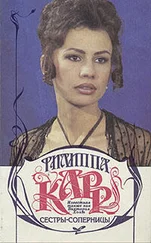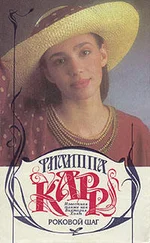"What a day for a journey!"
"It is winter."
"Still, it could have been better than this. Are you going to Crompton?"
"Yes, are you?"
"Yes. I was wondering if I should be met."
"You are staying there, are you?"
"I'm going as governess ... to Crompton Hall."
He started to laugh. He had beautiful white teeth.
"I'm going to Crompton Hall ... as tutor."
We stared at each other in disbelief.
I thought: Now this is something to put into the diary.
That journey was quite exciting. It was long because there were so many delays on the line. I didn't mind in the least. I wanted it to go on and on. He told me about himself. He was alone in the world—no parents. They had spent all they had on educating him and now here he was forced to earn a living and fully equipped to take the post of tutor to "a young gentleman in the country" —"as he was described to me," he said.
I told him I had nursed my widowed mother for years—I being the only child. She had had an annuity which had made living comfortable enough, but when she had died there was little else. Like him, I had received a good education so I was equipped to be a governess to "a young lady in the country."
By the time we had arrived at Crompton we were good friends and much of the apprehension I had been feeling was gone as we mounted the dogcart sent by our obliging employers; and we were conducted to Crompton Hall.
The next entry was:
February 3rd: Mother would scold me if she knew I had neglected my diary. She herself had been a great diarist, but when I looked over it after her death all it contained were things like: "Not so well today," or "Poured with rain all morning." I thought that such details were not really worth recording. In this book I shall write only what I feel to be significant in my life. And I feel it is beginning to be fraught with significance.
It is all due to Mervyn. How lucky I am that we should be here together. Even during our meeting on the train I felt this and so did he, I believe. We could laugh together over our employers. The Bonners were not Cornish. They had settled here only about five years before, and they were regarded as foreigners in the community, although they did not seem to be aware of it.
They think they are the lords of the manor. They don't seem to understand that to be regarded as such they would have had to live here for at least a hundred years. The servants despise them; so do the villagers. The Bonners are not gentry and there are no snobs like their kind. They are accepted by the doctor and the solicitor, the neighboring squires and of course the vicar: "dear bumbling old Rev," as Mervyn calls him. "He is the good shepherd and we are all his sheep, old and young, poor and nouveau riche." We have a lot of fun laughing at them all. The children are nonentities. They have to remember that they are a lady and a gentleman now with a tutor for Master Paul and a governess for Miss Jennifer. "How many families run to that!" as my employer would say. "Most of them would have only one for the two, but brass is meant to be spent to get the best for the family." That is Squire Bonner's policy; and it suits me very well for it brings Mervyn and me close together.
Mervyn has convinced the Bonners that the children should ride. It is part of their education. He is wonderful on a horse. I never rode much. I didn't have the opportunity. He is determined to teach me. He takes me out with the children, of course, and as Master Paul and Miss Jennifer enjoy that, Bonner mere and pere think it is a good thing. They are fast climbing up the social ladder and the saddle is yet another step.
The reason I am writing today is because silly little Gwennie Talbot said to me: "I think the tutor be sweet on 'ee, Miss."
I blushed which made her titter and I pretended to be annoyed. I said: "Don't be impertinent, Gwennie." But I was pleased. People are noticing. So that seemed worthy of an entry in my diary.
March 1st: I really am no diarist. It is only rarely that the urge comes over me to write. I suppose life has been going on in the same way all these weeks. But I have never been so happy and it is wonderful and all due to Mervyn. Each day I get up with a feeling of exhilaration. It is love, I suppose, and what is so exciting is that we are both under the same roof.
We are sometimes invited to dine at the Bonner table—the reason being that they are short of guests and we are educated—far better than our employers, I am glad to say—and we are of use to make up the numbers. This amuses us.
Mervyn always has a great deal to say about the people who visit us. He is observant of human nature and can be so amusing in a wicked sort of way. I tell him he is very cruel.
A few evenings ago the vicar came and brought with him some connection of his family—not a nephew—farther away than that ... a sort of second cousin, I imagine. The young man, it seemed, was a ne'er-do-well. He was rather good-looking ... quite handsome in fact. His name is Justin Cartwright.
When I read that I started. It was like a physical blow.
Justin! Then something else struck me. What was the name of the man we had thrown into the pool? Mervyn Duncarry. Mervyn was not a very common name. I had been wondering why Justin had thought it necessary for me to read the diary of a strange young woman named Mina. This was now taking on some significance.
I returned to the book.
He is staying with the vicar. I think he may have been in some sort of trouble. I quite like him. So does Mervyn.
March 6th: The greatest day of my life. Mervyn told me he loved me. We shall get married one day. But it is not easy for a tutor and a governess. But still ... all that is to be considered later. We shall have to make plans. I am quite blissful and can think of nothing else.
March 30th: Today we rode into Bodmin. We made the excuse that we had to get some books for the children's lessons and they were left in the charge of servants so we had the day to ourselves.
I have never been so happy before. I laughed when I remembered how apprehensive I had been about coming to this place and when I think of the happiness it has brought me, from the moment I stepped into that little branch line train, I cannot believe my good fortune.
"We are going to buy a ring," said Mervyn. "It's a pledge."
"I want to buy a ring for you," I replied. "There shall be one each."
"Have you got the money?"
"Not much."
"Nor I."
We rode into Bodmin and left the horses at an inn where we had a glass of cider and a sandwich. Even the most ordinary food tastes like ambrosia when one is in the state I am in. We went to look in a jeweler's shop. It had to be gold.
The prices were beyond us. Then I had this idea. Why didn't we buy one ring. He should wear it one week and I another. We hugged each other. So we went in and bought a gold signet ring which we could just manage with our combined money and we had our initials engraved inside: M.D. for him and W.B. for me.
I felt sick. I saw it again. The pool from which I could never escape. The ring I had found. I had given it to Grace and she had flung it into the sea.
"Wilhelmina," he said, for he always calls me by my full name. He said it sounds important. Wilhelmina is grand. Mina is just ordinary. "Wilhelmina, with this ring I make you mine for as long as we both shall live." I was so happy. I had never dreamed there could be such happiness. How we laughed over the ring. It was big for me. I could only wear it on my forefinger; and it went onto his little finger. We would later carry out our first intention. There should be two rings—one for him and one for me ... and we should always wear them because of what they meant to us.
April 5th: I suppose one cannot exist forever on the top pinnacle of happiness. I understand how Mervyn feels. Perhaps I shall give way ... in time. But I can't just ... lightly forget my upbringing, I suppose.
Читать дальше







